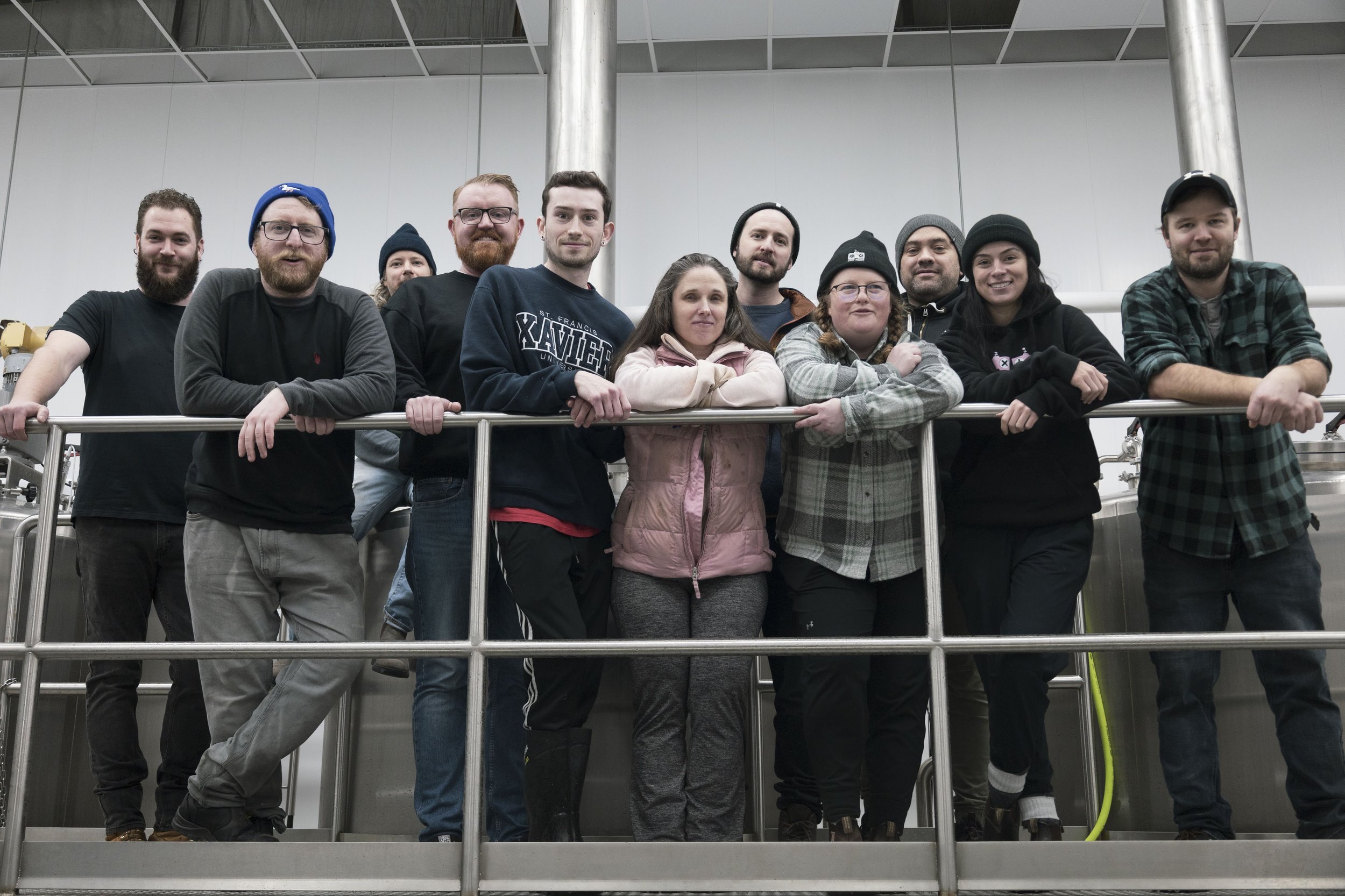Preparing for Your First Meeting with a Co-Packer: Essentials for Beverage Brands
As a beverage brand looking to enter the market or scale production, partnering with a co-packer or co-manufacturer can be a game-changer. But, in our experience, co-packers sometimes “ghost” prospective clients, ignoring their emails and calls because the prospective client is perceived as not yet ready. Here’s what to consider and bring along to ensure a productive discussion.
Homework for The Beverage Brand
Before we meet, you should collect two crucial items:
Your Target Costs (per unit): Make sure overhead is baked into your target cost.
Sales Projections: Get ready with forecasts for a specific period, like the upcoming summer or a full year.
We recently helped a client save $0.05 per can.
We knew that because they wanted to produce 150,000 cans over 3 months, one of our suppliers could supply the printed cans for cheaper than the client was sourcing them.
This added $7,500 to their profit over a production run.
And that's just the can!
Often, we can save clients dollars from boxes, stickers, labels, the liquid itself, storage, freight, and more.
Remember, good co-packers are problem solvers. But we can’t solve a problem if we don’t have the information.
Questions Co-Packers (Like Us) Will Ask You
Here are the questions we ask every person that is considering co-packing their beverage. Every single one of these variables impacts pricing and complexity, so it’s important that we understand as much as possible in order to provide you with a technical estimate.
Business
What challenges are you currently experiencing?
What is your approximate target annual volume? Desired or actual?
What is your target cost? Specify per which unit.
What does your beverage look like in 3 years?
Beverage Brewing & Production
Does the recipe need to be developed?
What beverage is the client making?
If alcohol, what is the desired final ABV?
What gas (CO2 or nitrogen) does the beverage require?
Please specify any certifications/accreditations required.
Please specify any special processes.
Is the beverage to be filtered and/or pasteurised by The Beverage Factory? (We recommend both. Filtration improves yield. Both processes improve shelf stability and consistency.)
What volume are we producing?
What specialty ingredients are used, if any? Is the client supplying specialty ingredients, such as hops?
What does the client want consumers to think and feel when experiencing this beverage?
Logistics
What is the desired date to have the beverage finished and ready to ship?
Where is/are the shipping destinations for the finished product? (If multiple, specify the number of pallets going to each location.)
If the client is supplying specialty ingredients in reusable containers, where is/are the shipping destinations for the reusable containers after usage?
Packing
What format of aluminium cans does the client require (237 ml Sleek, 250 ml Slim, 355 ml Standard, 355 ml Sleek, 473 ml Standard)?
Please specify any specialty packaging (e.g., black lids or cans, printed cans supplied by client, etc.).
What vessel are the cans being packaged in? (Cases (standard flats), Cases + PakTechs, Cartons (4pk, 6pk, 8pk, 12pk)
Please list additional packaging needs, such as kegs, including sizes and volume splits.
Do you need packaging design support?
Good Robot Lager in a 12-pack folded carton.
What Questions You Should Ask a Co-Packer
Here are some key questions to ask co-packers:
What is your Minimum Order Quantity (MOQ)? Knowing this upfront can help you assess whether your production needs align with our capabilities.
FYI, our MOQ is 6,000 litres.
What size equipment are you using? Understanding the equipment can help you gauge whether your desired volumes can be accommodated and if you can challenge the MOQ.
FYI, our tank sizes are 20 hl, 40 hl, 60 hl, 70 hl, 80 hl and 140 hl. Therefore, we can produce 2,000 litres. But our MOQ is 6,000 because the unit price for anything less than that is very high.
Can you meet the Production Team? Not everyone is willing to show you their facility.
FYI, we encourage you to visit us at The Beverage Factory. Spending time with our team can provide insights into what makes a winning product. They know how to develop successful beverages and what questions you should be asking.
Can you handle my specific product/recipe with your current machinery? If not, what would be needed?
FYI, the typical beverages we make can be found in our services.
Can you handle storage and distribution of finished goods? Co-packers are not typically third-party logistics companies. They don’t always have storage, nor do they necessarily distribute products.
FYI, while we do have some onsite storage, we typically recommend that clients use one of our trusted partners. While we are happy to manage logistics, freight and storage are typically paid and estimated separately by the responsible party.
What quality assurance processes and certifications do you have in place? (e.g. HACCP, GFSI, third-party audits)
FYI, we are certified CFIA, GFSI, Organic & GMP/HACCP.
Do you offer product development/formulation services? Co-packers do not necessarily offer product development services.
FYI, while we typically recommend to our clients that they develop their recipes via a food developer like Perennia, we occasionally have capacity to assist customers in developing new products. Please contact us for more information.
What is your typical turnaround time? How flexible are you with production schedules? Co-manufacturers are often oversubscribed and booked out months in advance. It’s important to understand turnaround times so you can plan your brand’s growth accordingly.
FYI, fermented beverages (like beer) typically take 4-6 weeks to produce and package. Blended, steeped and mixed beverages (like energy drinks) typically take 2-4 days to produce and package. Our typical lead time on projects is 12 weeks (meaning, if you need a product in 12 weeks, talk to us right now!).
Enough Reading. Ready to Chat?
Contact us today. Let’s see if we’re a good fit for one another.


